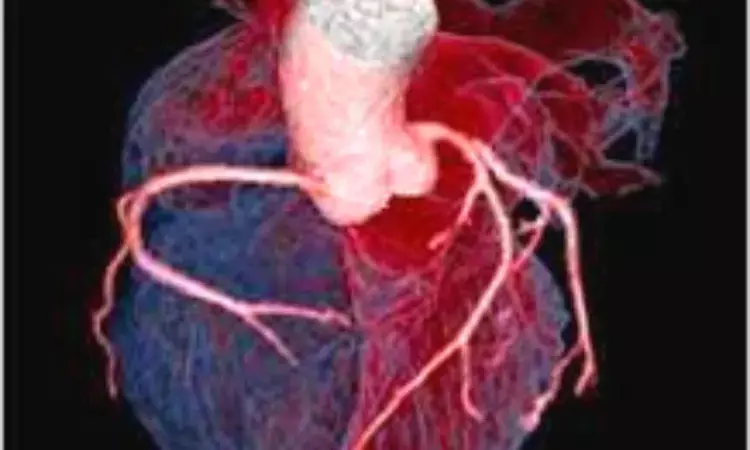- Home
- Medical news & Guidelines
- Anesthesiology
- Cardiology and CTVS
- Critical Care
- Dentistry
- Dermatology
- Diabetes and Endocrinology
- ENT
- Gastroenterology
- Medicine
- Nephrology
- Neurology
- Obstretics-Gynaecology
- Oncology
- Ophthalmology
- Orthopaedics
- Pediatrics-Neonatology
- Psychiatry
- Pulmonology
- Radiology
- Surgery
- Urology
- Laboratory Medicine
- Diet
- Nursing
- Paramedical
- Physiotherapy
- Health news
- Fact Check
- Bone Health Fact Check
- Brain Health Fact Check
- Cancer Related Fact Check
- Child Care Fact Check
- Dental and oral health fact check
- Diabetes and metabolic health fact check
- Diet and Nutrition Fact Check
- Eye and ENT Care Fact Check
- Fitness fact check
- Gut health fact check
- Heart health fact check
- Kidney health fact check
- Medical education fact check
- Men's health fact check
- Respiratory fact check
- Skin and hair care fact check
- Vaccine and Immunization fact check
- Women's health fact check
- AYUSH
- State News
- Andaman and Nicobar Islands
- Andhra Pradesh
- Arunachal Pradesh
- Assam
- Bihar
- Chandigarh
- Chattisgarh
- Dadra and Nagar Haveli
- Daman and Diu
- Delhi
- Goa
- Gujarat
- Haryana
- Himachal Pradesh
- Jammu & Kashmir
- Jharkhand
- Karnataka
- Kerala
- Ladakh
- Lakshadweep
- Madhya Pradesh
- Maharashtra
- Manipur
- Meghalaya
- Mizoram
- Nagaland
- Odisha
- Puducherry
- Punjab
- Rajasthan
- Sikkim
- Tamil Nadu
- Telangana
- Tripura
- Uttar Pradesh
- Uttrakhand
- West Bengal
- Medical Education
- Industry
Coronary CT angiography may help predict if patient needs invasive coronary angiography

Delhi: Coronary CT angiography (CCTA) is a promising tool for helping clinicians determine if a patient needs invasive coronary angiography, finds a recent study. Also, CCTA could be used for planning strategies for managing coronary interventions for treating the disease. The study was published online in the journal Radiology: Cardiothoracic Imaging on January 6, 2022.
CCTA emerges as a powerful non-invasive tool for characterizing the extent, presence, and severity of coronary artery disease (CAD) in stable angina patients. Recent advancements in CT scanner hardware and software can generate more useful clinical information from a single study, Jonathon A. Leipsic, Cardiovascular Center Aalst, OLV Clinic, Aalst, Belgium (N.M., J.S., C.C.), and colleagues noted in their study.
"Beyond merely identifying the presence of CAD and assessing stenosis severity, CCTA now allows for the identification and characterization of plaques, lesion length, and fluoroscopic angle optimization, as well as enables the assessment of the physiologic extent of stenosis through CT-derived fractional flow reserve, and may even allow for the prediction of the response to revascularization," wrote the authors. "These along with features make CCTA capable of giving the unique ability to help plan coronary intervention and guiding coronary angiography referral."
The paper has summarized current and future applications of CCTA in procedural planning for percutaneous coronary intervention, provides rationale for wider integration of CCTA in the workflow of the interventional cardiologist, and details how CCTA may help improve patient care and clinical outcomes.
"Coronary CT angiography could be used as a tool to guide referral for invasive coronary angiography, as well as to help plan coronary intervention," concluded the authors. "The potential of CCTA needs to be further explored in prospective trials to evaluate to what extent this modality may enable more efficient catheterization laboratory use, more complete revascularization, and improved clinical outcomes."
Reference:
The study titled, "Coronary CT Angiography to Guide Percutaneous Coronary Intervention," was published in the journal Radiology: Cardiothoracic Imaging.
Dr Kamal Kant Kohli-MBBS, DTCD- a chest specialist with more than 30 years of practice and a flair for writing clinical articles, Dr Kamal Kant Kohli joined Medical Dialogues as a Chief Editor of Medical News. Besides writing articles, as an editor, he proofreads and verifies all the medical content published on Medical Dialogues including those coming from journals, studies,medical conferences,guidelines etc. Email: drkohli@medicaldialogues.in. Contact no. 011-43720751


